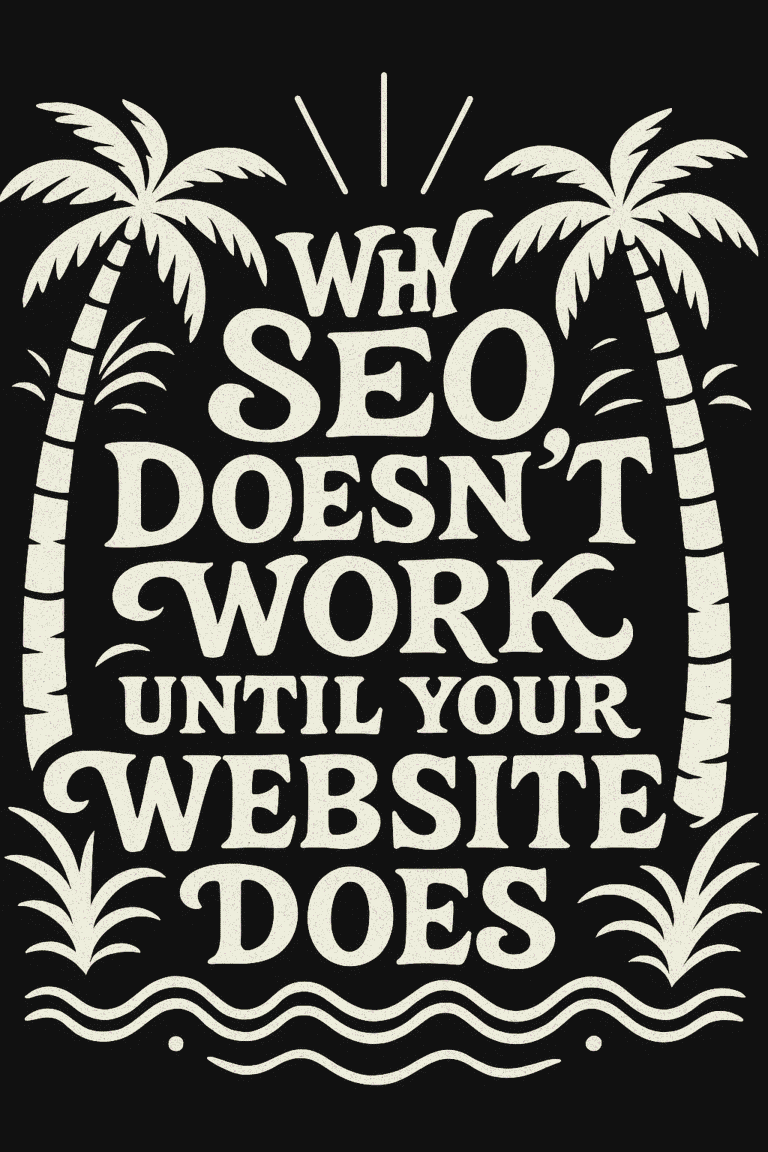
The importance of Search Engine Optimization (SEO) and effective branding cannot be overstated. These two elements form the backbone of a successful online strategy for any business, serving as critical tools for building visibility, credibility, and a strong customer base. SEO, with its focus on improving a website’s visibility in search engine results, is a key driver for attracting potential customers. In parallel, branding goes beyond mere logos or color schemes; it encapsulates the essence of a company’s identity and values, shaping how customers perceive and interact with the business.
However, the real magic happens when these two forces converge. Effective integration of SEO within a brand’s strategy doesn’t just elevate a website in search rankings; it fortifies the brand’s narrative, ensuring that the message reaching the audience is both powerful and consistent. This harmonious blend of SEO and branding doesn’t just guide customers to a business—it creates an enduring connection that aligns with the company’s core identity and values. This blog post will explore how skillfully integrating SEO can significantly amplify and refine your branding efforts, setting the stage for long-term business success on and offline.
Understanding the Basics of SEO and Branding
Definition and Importance of SEO:
- SEO Defined: SEO, or Search Engine Optimization, is the process of optimizing a website to improve its visibility and ranking on search engines like Google. This involves refining website content, structure, and on-page elements like keywords, meta descriptions, and image tags, alongside off-page factors such as backlinks and online citations.
- Why SEO Matters: Where the vast majority of consumer journeys begin online, being easily discoverable via search engines is crucial for any business. Effective SEO not only increases a website’s visibility and traffic but also targets quality traffic, attracting visitors who are genuinely interested in what the business offers. This leads to higher engagement, improved conversion rates, and, ultimately, better return on investment (ROI).
Branding and Its Impact on a Business’s Identity and Reputation:
- Understanding Branding: Branding is about creating a unique identity and image for a business, product, or service in the consumer’s mind. It encompasses elements like logo design, color schemes, messaging, and overall company ethos. Branding is what sets a company apart from its competitors and builds a recognizable and memorable presence in the market.
- Impact of Branding: Strong branding fosters customer loyalty, creates trust, and establishes an emotional connection with the audience. It shapes the perception of a company, influencing how customers interact with and perceive its value. Good branding can elevate a business, turning it into a preferred choice for consumers and a respected player in the market.
How SEO and Branding are Often Viewed Separately but are Intrinsically Linked:
- Perceived Separation: Traditionally, SEO and branding have been viewed as separate marketing strategies. SEO has been seen primarily as a technical endeavor focused on search engines, while branding is often considered a creative process focused on building customer relationships.
- Intrinsic Linkage: However, in reality, SEO and branding are deeply interconnected. The keywords and content used in SEO efforts can significantly influence brand messaging and perception. Consistent and high-quality content that resonates with a brand’s identity can enhance its credibility and authority, both with search engines and customers. Moreover, as SEO brings more visibility, it also brings more opportunities to showcase a brand’s unique voice and values, creating a cohesive and compelling brand narrative online.
SEO as a Tool for Building Brand Awareness
The Role of SEO in Increasing Online Visibility:
- Visibility as a Key to Discovery: Visibility is synonymous with existence online. SEO plays a crucial role in making a business visible in the crowded online space. By optimizing for relevant keywords, improving site speed, and ensuring mobile-friendliness, SEO tactics increase the likelihood of appearing in top search engine results.
- Broadening Reach: Effective SEO strategies extend a brand’s reach far beyond its immediate geography or traditional customer base. By ranking higher in search results, businesses can attract a global audience, tapping into new markets and demographics.
How Higher Search Engine Rankings Contribute to Brand Recognition:
- First Impressions Matter: Ranking high on search engine results pages (SERPs) is often the first point of contact between a brand and potential customers. Top positions in search results lend a brand immediate credibility and visibility, crucial elements for brand recognition.
- Repeated Exposure: Consistently appearing in search results for relevant queries reinforces brand recognition. The more often users see a brand in their search results, the more likely they are to recall and recognize it in the future.
Examples of Businesses Successfully Using SEO to Boost Brand Awareness:
- Case Study 1: A Local Retailer Expands Reach: A local retailer, initially catering to a small community, implemented a targeted SEO strategy focusing on local keywords and user-friendly content. This approach not only improved their local search ranking but also caught the attention of customers in surrounding areas, significantly expanding their brand reach.
- Case Study 2: E-commerce Site Gains Global Recognition: An e-commerce platform specializing in sustainable goods used SEO to target specific niche keywords. This not only improved their rankings in these niche areas but also positioned them as a leading brand in the sustainable goods market, enhancing their global brand recognition.
- Case Study 3: B2B Company Builds Industry Authority: A B2B service provider focused on creating high-quality, informative content around industry-specific keywords. This content strategy, coupled with robust SEO, established them as a thought leader in their industry, boosting their brand awareness and credibility.
Enhancing Brand Credibility through SEO
The Relationship Between Search Engine Rankings and Perceived Credibility:
- Search Rankings as Trust Indicators: High rankings on search engine results pages (SERPs) are often interpreted by users as a mark of credibility and trustworthiness. This perception stems from the belief that top-ranked sites are more authoritative and reliable in their respective fields.
- Building Trust through Visibility: Regular appearance in top search results, particularly for industry-relevant queries, helps establish a brand as a leader in its niche. This enhanced visibility, provided by effective SEO, translates into increased trust from potential customers.
Strategies for Using SEO to Promote Brand Trustworthiness and Authority:
- Keyword Optimization for Authority: Using relevant, industry-specific keywords helps in presenting a brand as knowledgeable and well-versed in its field. This careful selection and use of keywords in website content signal expertise to both search engines and users.
- Building a Robust Link Profile: Gaining high-quality backlinks from reputable sites is a key SEO strategy that significantly boosts credibility. Search engines view these backlinks as endorsements, improving the brand’s authority and search rankings.
- Consistent and Authentic Content Creation: Regularly publishing valuable, accurate, and engaging content establishes a brand as a reliable source of information. This not only helps in improving SEO rankings but also in building a loyal audience base.
The Impact of Content Quality, Backlinks, and User Experience on Brand Perception:
- Quality Content as a Credibility Marker: High-quality, well-researched content is essential for both SEO and brand credibility. Content that addresses customer queries, offers insightful information, and is updated regularly fosters trust and authority.
- Backlinks as Endorsements: High-quality backlinks from authoritative websites act like votes of confidence, enhancing a brand’s reputation. A strong backlink profile is a clear indicator of a brand’s standing and reliability in its industry.
- User Experience (UX) and Brand Trust: SEO is not just about keywords and backlinks; it’s also about providing a great user experience. Websites that are easy to navigate, fast-loading, and mobile-friendly are likely to rank higher in SERPs. A positive user experience reinforces a brand’s commitment to its customers, further strengthening its credibility and trustworthiness.
SEO and Brand Consistency Across Platforms
The Importance of Maintaining a Consistent Brand Message in SEO Efforts:
- Unified Messaging for Stronger Brand Recall: Consistency in brand messaging is key to building a recognizable and memorable brand identity. In SEO, this consistency helps reinforce what a brand stands for, ensuring that every appearance in search results contributes to a unified brand image.
- Consistent Messaging Across Search Queries: Whether a potential customer is searching for a specific product or general information, encountering consistent brand messaging across different search queries helps in building a cohesive brand story. This alignment enhances brand recall and strengthens customer trust.
Utilizing Keywords and Metadata to Reinforce Brand Messaging:
- Strategic Use of Keywords: Carefully chosen keywords that align with a brand’s core message and values can be powerful in conveying a consistent brand narrative. These keywords should be naturally integrated into website content, blog posts, and product descriptions to maintain a cohesive brand voice.
- Leveraging Meta-Data for Brand Consistency: Meta titles and descriptions are often the first pieces of text a user sees in search results. Crafting these elements to accurately reflect the brand’s message not only improves SEO but also ensures that the brand’s first impression is consistent and compelling.
Ensuring Brand Consistency Across Various Digital Channels through SEO Practices:
- Uniformity Across All Platforms: A consistent brand presence across various digital platforms, including social media, online directories, and review sites, is crucial. SEO practices should ensure that the brand’s messaging, tone, and visuals are harmonious across all these channels.
- Local SEO for Consistent Brand Presence: For businesses with multiple locations or a local focus, maintaining consistent NAP (Name, Address, Phone Number) information and brand messaging across local listings and Google My Business profiles is essential. This consistency helps in building a reliable and trustworthy brand image locally.
- Integrating SEO and Social Media for Unified Branding: Social media platforms are often included in search results. Optimizing social media content with SEO in mind can further enhance brand consistency. Regularly updating profiles and posting content that aligns with the brand’s SEO strategy can create a seamless brand experience across search engines and social platforms.
Leveraging Local SEO for Branding in Community Engagement
The Significance of Local SEO for Businesses with Physical Locations or Local Services:
- Local SEO: A Vital Tool for Physical Businesses: For businesses with brick-and-mortar locations or those providing local services, local SEO is crucial. It enhances visibility in local search queries, which are often highly targeted and have a higher conversion rate.
- Connecting with the Local Community: Local SEO allows businesses to connect more effectively with their local community. By appearing in local search results, businesses can increase their local presence, making it easier for nearby customers to find and engage with them.
How Local SEO Strategies Can Enhance Community Presence and Brand Loyalty:
- Building a Local Brand Identity: Effective local SEO strategies help in establishing a business as a local authority or go-to place within the community. This presence fosters a sense of familiarity and trust among local customers, which is essential for building brand loyalty.
- Engaging with Local Audiences: Local SEO provides opportunities for businesses to engage in community-related events and topics, further enhancing their local brand presence. Engaging content tailored to local interests or community activities can strengthen the connection with the local audience.
Tips for Optimizing for Local SEO, Including Google My Business and Local Keywords:
- Optimizing Google My Business (GMB) Profile: A complete and accurate GMB profile is fundamental for local SEO success. This includes ensuring that the business name, address, and phone number (NAP) are consistent across the web, adding relevant categories, a thorough description, quality photos, and managing reviews.
- Utilizing Local Keywords: Incorporating location-specific keywords into website content, meta titles, and descriptions can significantly improve local search visibility. Keywords should reflect local speech patterns and commonly searched terms in the area.
- Encouraging Customer Reviews: Positive customer reviews, especially on Google My Business, enhance a business’s credibility and visibility in local search results. Encourage satisfied customers to leave reviews and respond professionally to both positive and negative feedback.
- Local Link Building: Building links with other local businesses and participating in local events can improve local search rankings. This includes collaborating with local influencers, sponsoring local events, or joining local business associations.
- Mobile Optimization: With a massive number of local searches conducted on mobile devices, ensuring that a website is mobile-friendly is crucial for local SEO. This includes having a responsive design, fast loading times, and easy navigation.
Measuring the Impact of SEO on Branding
Tools and Metrics for Tracking SEO Performance and Its Influence on Brand Building:
- Essential SEO Metrics: Key metrics to track SEO performance include organic traffic, keyword rankings, click-through rates (CTR), and domain authority. These metrics provide insights into how effectively a website is capturing organic search traffic and how it ranks for target keywords.
- SEO Tools for Analysis: Tools like Google Analytics, SEMrush, Ahrefs, and Moz offer comprehensive insights into SEO performance. These tools help in tracking keyword rankings, analyzing backlink profiles, monitoring competitor performance, and understanding user behavior on the website.
- Branding Metrics Linked to SEO: It’s also important to track metrics that directly relate to branding efforts, such as branded search volume (how many people are searching for the brand name) and the share of voice in organic search (a brand’s visibility in search results compared to competitors).
Analyzing Website Traffic, Engagement, and Conversion Rates:
- Interpreting Traffic and Engagement Data: Higher organic traffic and longer time spent on a site may indicate that the content is resonating with the audience, contributing positively to brand perception. Engagement metrics like pages per session and bounce rate also provide insights into user interest and content relevance.
- Conversion Rate Analysis: Conversion rates from organic traffic can reveal how effectively the website is turning visitors into customers or leads. High conversion rates are often a sign of strong brand alignment between what the audience is seeking and what the business offers.
The Role of Customer Feedback and Social Media Mentions in Measuring Brand Impact:
- Customer Feedback as a Brand Barometer: Customer reviews, comments, and feedback, especially those mentioning specific aspects of the brand or products/services, are invaluable for assessing brand sentiment and recognition. This feedback can highlight areas where the brand is excelling or needing improvement.
- Tracking Social Media Mentions: Social listening tools can track mentions of the brand across social media platforms. An increase in mentions or positive sentiment in these mentions can be an indicator of growing brand awareness and reputation.
- Integrating SEO and Social Media Analytics: Combining insights from SEO tools with social media analytics provides a more holistic view of how a brand is perceived online. This approach helps in understanding how SEO efforts are influencing brand reputation across different digital channels.
Conclusion
In this exploration of the dynamic interplay between SEO and branding, we’ve uncovered how each element supports and enhances the other. SEO, far from being just a technical endeavor, plays a pivotal role in broadcasting a brand’s voice, values, and message to a wider audience. Through strategic keyword use, high-quality content, and user-focused optimization, SEO not only improves a brand’s online visibility but also cements its credibility and authority.
We’ve also seen how local SEO can be a game-changer for businesses with a physical presence, fostering community connections and loyalty. Moreover, the importance of consistent branding across various digital platforms, powered by SEO, cannot be overstated. It ensures that every interaction with the brand, be it through a search result, social media, or a customer review, resonates with the brand’s core identity.
Most importantly, the impact of these efforts can be measured and refined. Tools and metrics that track SEO performance offer valuable insights into how these strategies influence brand perception and customer engagement. Analyzing data from website traffic, conversion rates, and social media mentions provides a comprehensive view of a brand’s online stature.
In conclusion, the symbiotic relationship between SEO and branding is undeniable and indispensable today. Businesses that strategically integrate SEO into their branding efforts are setting themselves up for success, building a strong, recognizable, and respected brand. As we move forward in an increasingly online world, the fusion of SEO and branding becomes not just beneficial, but essential for any business aiming to make a lasting impression in the minds of its consumers.





